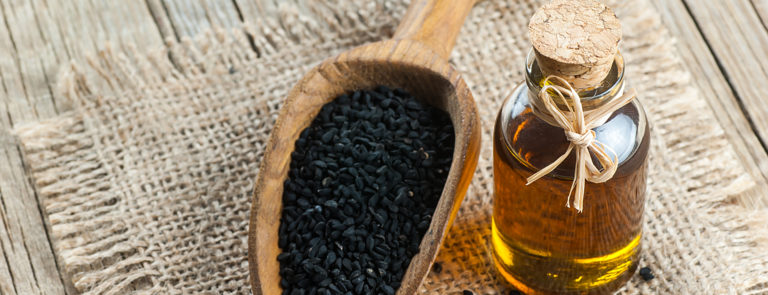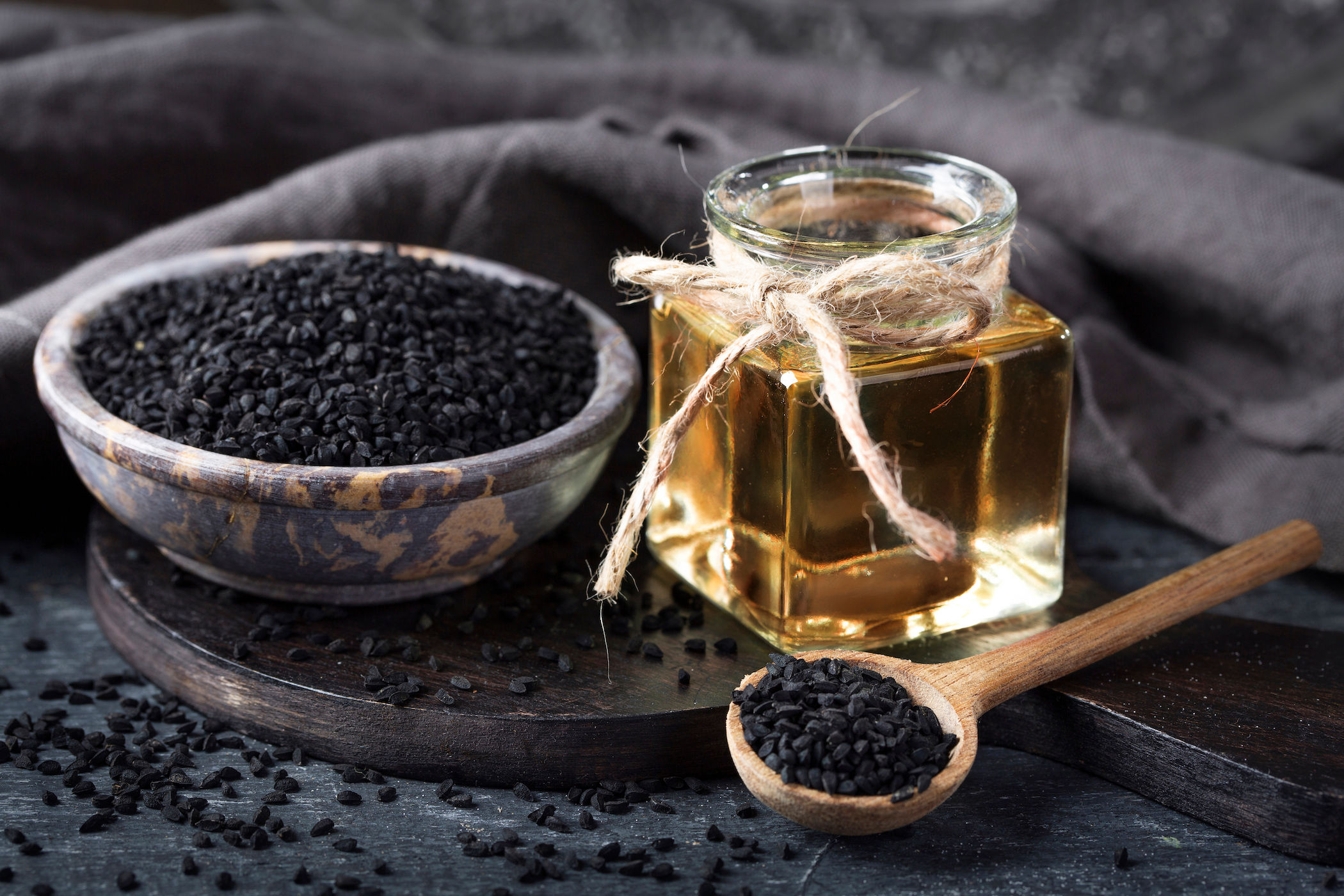Table Of Content

It palliates several skin conditions such as eczema (a skin condition that makes your skin itchy, dry, and bumpy) and psoriasis (a condition that causes scaly patches and itch). (5) It balances the oil production on the scalp and keeps it well moisturized. Keep in mind that most individuals use black seed oil topically when aiming to improve hair health, so the liquid dosage is most relevant here. In general, short-term use of 3 months or less hasn’t been linked to any serious side effects. However, in one study, taking 1 teaspoon (5 mL) of black seed oil per day for 8 weeks did cause nausea and bloating in some participants (2, 48).
Peppermint Oil, Hair Growth, and Possible Benefits
"Normal occurring fungus organisms on the scalp are felt to play a role in dandruff. There is support for using black seed oil along with other delivery ingredients to help decrease dandruff," Dr. Skotnicki says. But again, there isn’t a ton of clinical research to back up this claim; however, anecdotal evidence supports it. But you can have fun experimenting with all manner of haircare products infused with black seed oil. Those with strands that feel limp or lackluster could see benefit, as could those with dandruff or seborrheic dermatitis.
Don’t expect to see results right away.
Among notable home remedy ingredients, black seed (nigella sativa) oil—a therapeutic agent with strong medicinal properties—has been used for centuries. In fact, research suggests the use of natural remedies from seeds, barks, fruits and other plant parts dates as far back as humans themselves. If you’ve been navigating the world of hair products for any time longer than the typical shampoo and conditioner user, you have probably come across black seed.
Medicinal Properties of Black Seed Oil For Body and Hair
This combination treatment removes dandruff from your hair and improves the overall health of your scalp. The Thymoquinone in black seed oil is what makes it such a great ingredient for healthy natural hair. This is because Thymoquinone is an antihistamine that counters the inflammatory, allergic reactions that cells can have in response to injury or irritation. Antihistamines are also often prescribed to patients with alopecia to aid hair regrowth. According to a 2021 study, the high amounts of fatty amino acids and antioxidants in black seed oil seal the moisture in the hair shaft and moisturize the scalp and hair. (7)(5) The hair shaft is the visible part of the hair that sticks out of the skin.

When to Avoid Grapeseed Oil for Hair
A member of the Buttercup family, this annual flowering plant is often grown as an ornamental because of its eye-catching blue or white flowers. And even when they’re not consumable, many plants bear attractive flowers that can brighten up any space inside or outside your home. Some even emit distinct, pleasant scents that can help you relax and sleep well or naturally elevate your mood. Of all the superbugs that this powerful oil can kill, methicillin resistant staphylococcus aureus (MRSA) is one of the most important. MRSA plagues hospitals and nursing homes across the globe because ordinary staph infections are becoming resistant to generic antibiotics.
How to Use Black Seed Oil for Hair Growth in 2022 According to Doctors - Cosmopolitan
How to Use Black Seed Oil for Hair Growth in 2022 According to Doctors.
Posted: Fri, 01 Jan 2021 08:00:00 GMT [source]
If you’re taking black seed oil and have surgery scheduled, it’s recommended to stop taking it at least two weeks prior to your surgery date. Black seed oil is the oil extracted from the seed of the Nigella sativa plant. This plant is native to Northern Africa, parts of Europe, as well as Western Asia. It is often celebrated for its effects on hair growth and revitalizing limp hair.
Black seed oil mingles with other natural oils like castor, jojoba, and coconut in this super elixir. Our experts continually monitor the health and wellness space, and we update our articles when new information becomes available. Elevate your health and performance to new heights with Transparent Labs meticulously crafted formula, designed to support your body's needs at every level. Transparent Labs Multivitamin is a testament to purity, with no artificial additives, fillers, or unnecessary ingredients.

Reverses hair damage
Apply a small amount of this dry oil onto palms and run it through your hair—all of the benefits, none of the greasiness. This could benefit multiple aspects of health, as some research suggests that inflammation could contribute to the development of many chronic conditions, like type 2 diabetes, heart disease, and cancer. Studies in animals have found that thymoquinone may help treat burns, excisions, and diabetic wounds due to its anti-inflammatory, antioxidant, and antibacterial effects.
Black Seed Oil for Hair: What It Is and How to Use It
And when diluted, it can be used directly on the scalp to reduce inflammation, stimulate hair growth and reduce flakiness and sensitivity. However, even if you don’t have any scalp conditions, it helps to make hair healthy, soft, hydrated and shiny with consistent use. Black cumin seed oil is available to be taken orally in pill form, in a cold-pressed oil, and can be formulated into hair care products like shampoos, conditioners, and styling products.
Though many of these products claim to improve the shine, strength, volume, and texture of hair, there is very little research on the benefits of black seed oil for hair health. Thymoquinone can promote wound healing due to its antioxidant, anti-inflammatory and antibacterial properties, says Speed. Black seed oil can also stimulate the production of collagen, speeding up the skin’s healing process, she adds. However, more research is needed as data on black seed oil’s wound-healing properties is largely limited to animal studies. If you suffer from dandruff, black seed oil is an excellent natural remedy, especially when you apply it directly to the scalp on a daily basis. This will not only soothe the itching but it will also reduce the flakiness, improve root strength and enhance the look and feel of your scalp and hair.
Whether you have issues with hair loss or not, black seed oil grows new hair in either scenario. TQ and nigella sativa oil itself have been shown to have antimicrobial, antioxidant, anti-inflammatory, antifungal, and antiviral properties, according to a 2017 study review published in the Journal of Tropical Medicine. But if used consistently, there is some compelling evidence to show that this time-honored ingredient may help give your hair a boost. And if you really want to determine what may be causing your hair to thin or fall out, make an appointment with a trichologist or dermatologist who specializes in hair and scalp health. Still, additional studies are needed to understand whether black seed oil and thymoquinone could also promote wound healing in humans.
And a study in the Journal of Cosmetics, Dermatological Sciences and Applications found that applying black seed oil to scalp increased hair density for 90% of folks within three months. What’s more, it boosted the thickness of strands for 100% of study participants. Though this small study wasn't conclusive enough to make a larger statement, it was enough to justify looking into black seed oil's effectiveness further. "It should be noted that while black seed oil has been used for thousands of years to promote a healthy scalp and hair growth, there are still no clinical studies to support the anecdotal claims," Koestline says. Google "black seed oil for hair" and the first thing you'll notice is that a) there are tons of articles on the topic, and b) most of them are related to hair loss.
“Grapeseed oil is rich in antioxidants, vitamins and fatty acids, making it a beneficial ingredient for hair care,” he adds. Hair oils — from coconut oil to castor oil, cedarwood oil, jojoba oil and more — may be well known as the secret to having soft, shiny, healthier-looking strands. And while grapeseed oil may not be the most talked about hair oil, the specialists share that it may be the most underrated in terms of the potential benefits it can provide for every hair type and concern. The benefits of grapeseed oil range from boosting hydration and shine, acting as a natural heat protectant and split end sealant, and working well alongside other hair oils in nearly any formula it’s woven into.

No comments:
Post a Comment